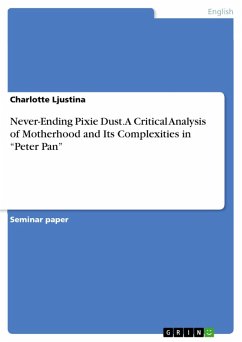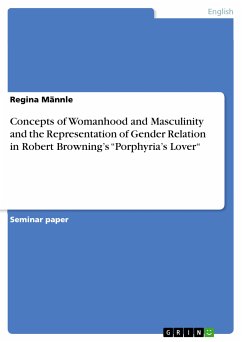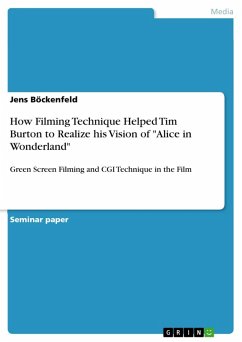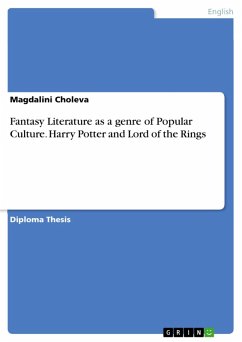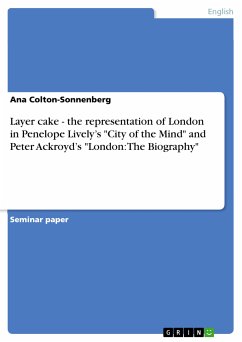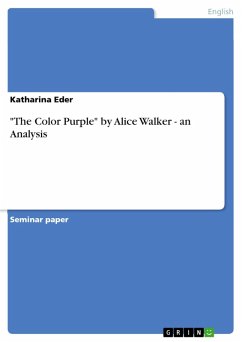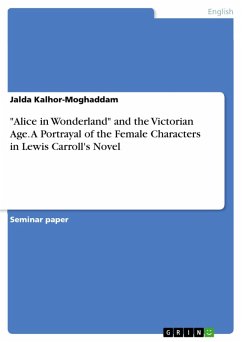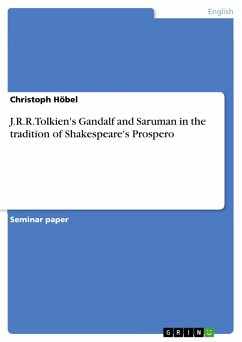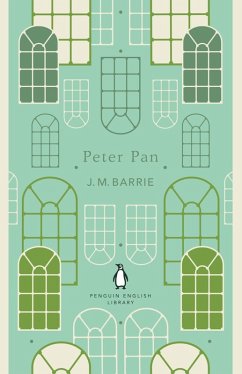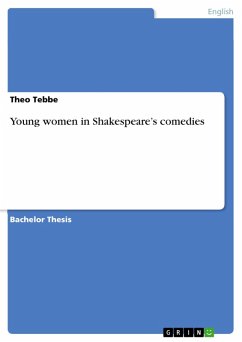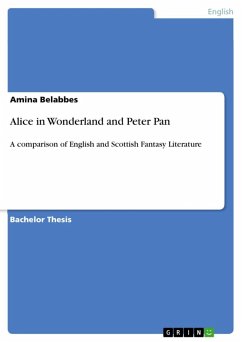
Alice in Wonderland and Peter Pan (eBook, ePUB)
A comparison of English and Scottish Fantasy Literature
Sofort per Download lieferbar
Statt: 27,95 €**
18,99 €
inkl. MwSt. und vom Verlag festgesetzt.
**Preis der gedruckten Ausgabe (Broschiertes Buch)
Alle Infos zum eBook verschenkenWeitere Ausgaben:

PAYBACK Punkte
0 °P sammeln!
Bachelor Thesis from the year 2009 in the subject English Language and Literature Studies - Literature, grade: 2,0, Johannes Gutenberg University Mainz (FTSK Germersheim), language: English, abstract: 'Fantasy literature' is a term most people have come across at some point in their lives nowadays. [...] Since the recognition of fantasy as a literary genre, "most have treated it as an international and mainly Anglo-Saxon form" (Manlove:1999, 1). Therefore, it appears only reasonable to take a closer look at the sort of fantasy literature that originates from the English-speaking countries. [.....
Bachelor Thesis from the year 2009 in the subject English Language and Literature Studies - Literature, grade: 2,0, Johannes Gutenberg University Mainz (FTSK Germersheim), language: English, abstract: 'Fantasy literature' is a term most people have come across at some point in their lives nowadays. [...] Since the recognition of fantasy as a literary genre, "most have treated it as an international and mainly Anglo-Saxon form" (Manlove:1999, 1). Therefore, it appears only reasonable to take a closer look at the sort of fantasy literature that originates from the English-speaking countries. [...] Some of the best known authors of fantasy literature are of English or Scottish origin. Both England and Scotland begot highly creative and sophisticated fantasists. And works of both English and Scottish fantasy have had a great impact on the entire genre. [...] Although they are neighbours and share a common language, English and Scottish fantasists have always had very different ways of expressing themselves. The aim of this dissertation is to point out the similarities as well as the differences of English and Scottish fantasy literature, in order to clarify what it is exactly that characterises them. As there are a great many different pieces of literature which provide material for the analysis and characterisation of Scottish and English fantasy, statements on the two shall be underlined with examples. [...] A famous English novel belonging to the fantasy genre is Alice's Adventures in Wonderland (AAW) written by Lewis Carroll in 1865. It is often categorised as children's fantasy. One of the most famous pieces of Scottish fantasy literature, which was also written for children, is J. M. Barrie's Peter Pan (PP), published in 1911. These two books will serve as the basis for a comparison of English and Scottish fantasy literature. At the beginning of this dissertation, the attempt for a general definition of the term 'fantasy literature' will be made. This will be followed by a short characterisation of fantasy in the historical context of the Victorian era, as well as a definition of the category 'children's fantasy'. Then there will be a general characterisation of Scottish and then of English fantasy. After that, the two novels will be introduced, beginning with short biographies of their authors, followed by summaries of their plots and then an examination of the respective characteristics that mark them as either Scottish or English. Based on the results of the analysis, the dissertation concludes with a comparison of English and Scottish fantasy. The books written by Colin Manlove [...] will serve as the most important resource for this analysis.
Dieser Download kann aus rechtlichen Gründen nur mit Rechnungsadresse in A, B, BG, CY, CZ, D, DK, EW, E, FIN, F, GR, HR, H, IRL, I, LT, L, LR, M, NL, PL, P, R, S, SLO, SK ausgeliefert werden.




